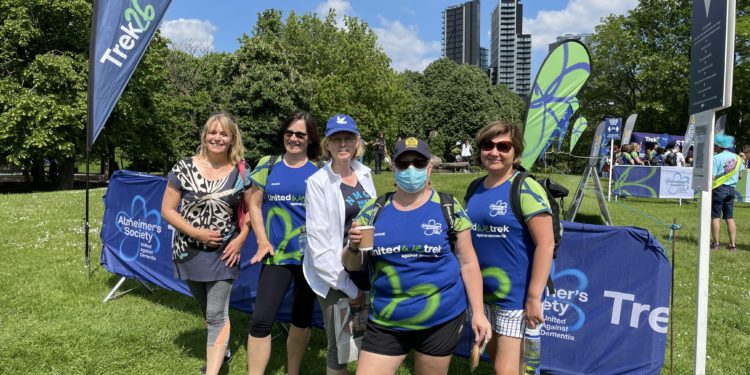Last week, we completed a half-marathon walk around London in support of the fight against dementia. It would be remiss not to thank all of you who, very kindly, sponsored this effort. You made a tremendous difference with your support, not just to us (by making it difficult for any one of us to rethink our commitment to the walk – not that any one of us was tempted) but to those affected by dementia both now and in the future. The team and I are most grateful! For a full account of the walk, read Melissa’s editorial.
What I want to share with you today are some of the insightful conversations that we had during our five hours of walking through the streets of our incredible city.
It won’t surprise you to hear that the conversation meandered (like the River Thames) through some of the topics of our trade, Diversity and Inclusion. Here are three of them:
Stereotypes and Individuals
Walking with worldly, culturally-diverse women, the conversation at one point turned to cultural stereotypes. We observed how families often hire au pairs from a specific country based on cultural stereotypes. I remembered how people expected me to be an excellent ice-skater just because I was born in Russia. And Inge – being from the Netherlands – fell foul of the expectation that Dutch people are very tall. This is, of course, because, when applied to individuals, stereotypes tend not to hold up (my ice-skating skills are abysmal, and Inge is not very tall). Bearing this in mind will help us mitigate some of our biases and avoid questions that shouldn’t be asked (as discussed in the blog “Are you coming back?“) While stereotypes might have their place, it would be a mistake to apply them to individuals.
The Fallacy of Averages
Like stereotypes, we discussed how averages also don’t work well. Referencing the book Rebel Ideas, we reminded ourselves of the story Matthew Syed told about a time when cockpit dimensions were based on the average measurements of pilots. As a result, planes designed on this basis suffered frequent accidents. The reason: cockpits based on averages didn’t fit any one single individual in it. In other words, a one-size-fits-all approach resulted in a one-size-fits-none situation. To address this, cockpits were re-designed to allow pilots to adjust seats and angles to suit their requirements – much like we’re accustomed to doing in our cars.
Applying this to business, many of today’s work-related conventions are not suitable for the type of diverse environment that employment has become. Judging all individuals, for instance, on the basis of leadership criteria that are attributed to a specific type – directive, outgoing, polished – disqualifies many suitable candidates for whom those criteria don’t work. Were we to judge individuals on their ability to lead (as manifested in various ways, including in volunteer and personal responsibilities), we would be able to harness more diversity at leadership level, which is still so desperately lacking in most companies.
Breeding Entitlement
The conversation then moved to “privilege”, i.e. the lack of obstacles experienced by those who embody the type for whom institutions were created. We talked about how most women still experience the world as a man’s world – case in point, the recent realisation from the health minister Nadine Dorries that the NHS caters to men more than to women. We also explored how when women apologise or step out of the way when a man walks towards them, this behaviour breeds entitlement. When someone says “sorry” for no apparent reason, it makes the other person intuitively think “You should be!” and inadvertently increases that sense of entitlement (to an apology) that continues to grow. In this way, the rift between the “privileged” and the “less privileged” expands and becomes more difficult to bridge.
As we reflected on society’s complexities and ingrained behaviours, we realised how incredibly difficult this challenge is to crack. We also, thankfully, observed that the world has come a long way, and many of the norms that were in place even 10-15 years ago have dissipated, making way for new practices that allow individuals to be themselves and not be punished for it.


